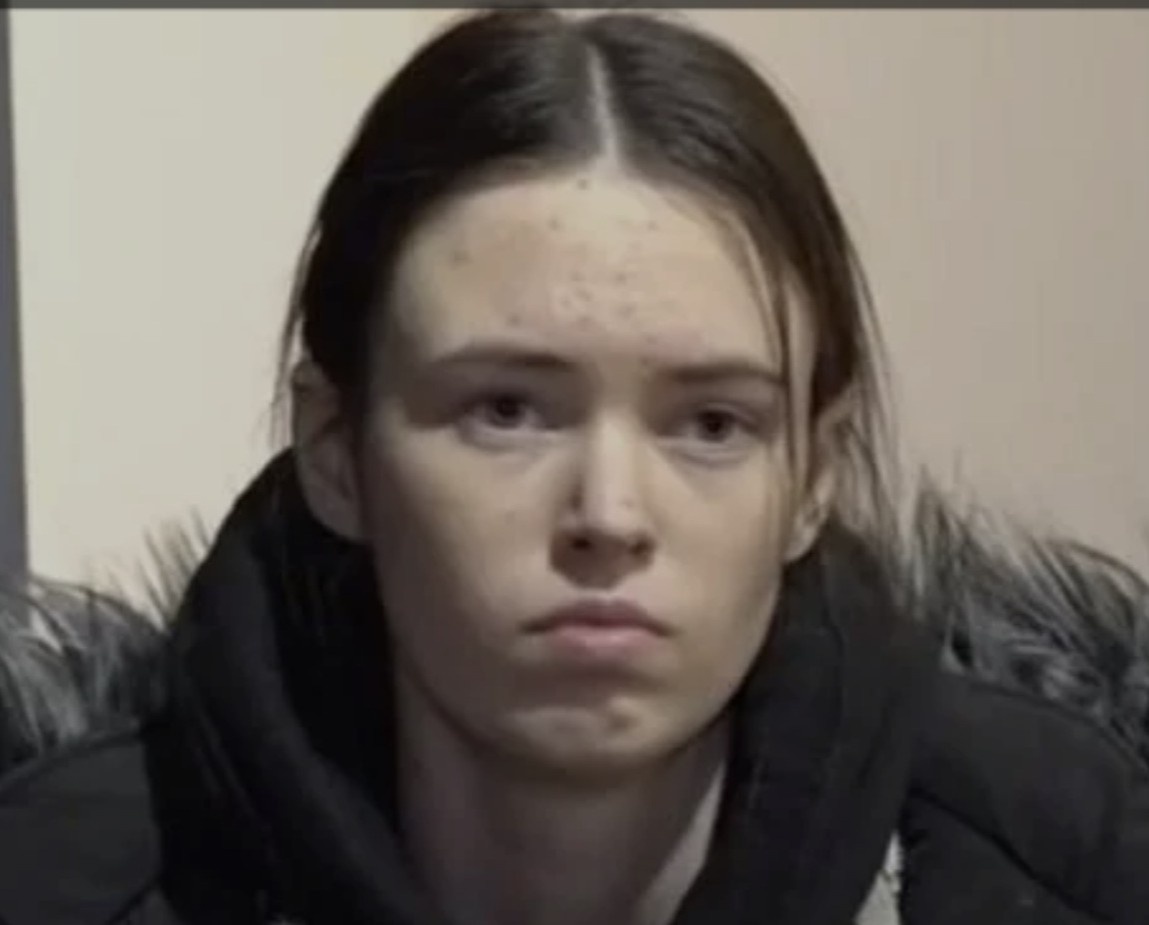
Yana Suvorova was just 18 when she was abducted in August 2023, together with several other Ukrainian journalists and administrators of two Telegram channels which dared to tell the truth about Russia’s occupation of Melitopol. She turned 21 ten days before being sentenced on 23 October 2025 to 14 years on charges based solely on the surreal ‘confession’ which she was almost certainly tortured into making.
Russia’s attack on Melitopol journalists and administrators of the channels RIA-Melitopol and Melitopol is Ukraine has been internationally condemned as yet another attempt by the Russian invaders to crush any independent media resources on occupied territory.
Yana Suvorova was one of six or more journalists / administrators who were abducted on or just after 20 August 2023, the day that the Russian invaders managed to hack into and hijack RIA-Melitopol, and then Melitopol is Ukraine. These were enforced disappearances, not arrests, with the young men and women simply disappearing. They ‘reappeared’ in a cynical propaganda stunt on Russian television on 27 October 2023, with Russia’s FSB claiming that it had detained three large reconnaissance groups under the control of Ukraine’s Military Intelligence. Aside from Kostiantyn Zinovkin, all of those shown looking evidently terrorized and giving surreal ‘confessions’ were journalists / administrators from the two Telegram channels. Although the propaganda program clearly implied that the ‘operation against supposed Ukrainian 'agent groups’ had just taken place, all had been held incommunicado, undoubtedly without access to independent lawyers since August that year. They were accused of ‘public calls to terrorist attacks’; supposed ‘treason’ and ‘spying’ and threatened with 12 to 20 years’ imprisonment. Yana Suvorova, Mark Kaliush, a very young man earlier diagnosed with schizophrenia and journalist Heorhy Levchenko were shown providing the ‘confessions and repentance’ clearly demanded of them.
It was almost two years later that Russia began churning out sentences against these young journalists and moderators, with Yana Suvorova the fourth to receive a shocking sentence.
In her case, it was claimed that she “between 12 October and 27 December 2022, Ukraine’s Military Intelligence had drawn Suvorova into what they termed “a terrorist organization”. Supposedly, in order to gather information about Russian military and enforcement officials, she had become a moderator for a Telegram channel, Telegram bot for feedback and chat-bot, purportedly “intended for passing on information about places of deployment of Russian armed forces personnel and and technology, as well as of Russian so-called law-enforcement’ officials. Although the prosecution tried to turn the two Telegram channels into some kind of spying hub, they did ‘accuse’ the Ukrainian administrator of editing posts and publishing ‘pro-Ukrainian content’.
Presumably understanding that none of the above could quite justify ‘terrorism’ charges, the prosecution claimed that, in February Suvorova and the others had “taken the decision to commit an act of terrorism” Suvorova was charged, together with Vladyslav Hershon; Denys Hlushchenko; Oleksandr Malyshev and Maksym Rupchov with having directed Ukrainian missile fire at a building on 50th Anniversary of Victory Avenue which had been commandeered by the Russian FSB and Rosgvardia in occupied Zaporizhzhia oblast. Ukraine’s Armed Forces had, certainly, carried out an attack on this building, using a HIMARS missile on 27 March 2023, although those inside had vacated the building when the sirens sounded. Attempts to present this as an attack on a ‘civilian’ site are absurd: this was very clearly a site used by the invading state and, therefore, a legitimate target for Ukraine’s Armed Forces. Russia’s attempts to treat Ukrainians who provide information to the defenders of their own country as ‘terrorists’ are deeply cynical and flawed. Where the claim is that six or seven journalists and administrators provided the information as part of a ‘plot to commit a terrorist act’, plausibility is stretched well beyond breaking point.
The charges against Yana Suvorova were under Article 205.4 § 2 of Russia’s criminal code (‘involvement in a terrorist organization’); Article 205 § 2a and c (planning a terrorist attack) and ‘spying’, under Article 276. Russia’s ‘trials’ of Crimean Tatar and other Ukrainian political prisoners are trials in name alone, with convictions and long sentences predetermined. In this case, the verdict and 14-year sentence in a medium-security prison colony (the harshest in the case of women) were passed on 23 October by ‘judge’ Timur Khabaovich Mashukov from Russia’s Southern District Military Court. The latter has been notorious for its role in Russia’s persecution of Ukrainian political prisoners since 2014. Suvorova’s name had been hidden on the court documents, with this presumably only to prevent advance warning of the ‘hearings’, as the court’s press service, in announcing the sentence, gave her name in full.
Russia has now passed four horrific sentences. In July 2025, the Southern District Military Court ordered ‘mandatory psychiatric treatment’ in the case of 28-year-old Mark Kaliush. The word ‘treatment’ is as misleading now as it was during the Soviet period of punitive psychiatry. The conditions are likely to be appalling, and such a sentence potentially leading to him being held indefinitely. This, thankfully, proved not to be the case, with Kaliush released in a prisoner exchange a couple of months after the sentence.
In the space of two days, journalists Heorhy Levchenko on 2 September 2025 and Vladyslav Hershon on 3 September were sentenced to 16 and 15 years’ imprisonment, respectively. Both sentences are for maximum-security imprisonment, and are considerably harsher than the sentences Russian courts pass against murderers and other real criminals.
The sentences are evidently coordinated, and aimed, as Reporters without Borders commented, at criminalizing independent journalism and terrorizing the population.



